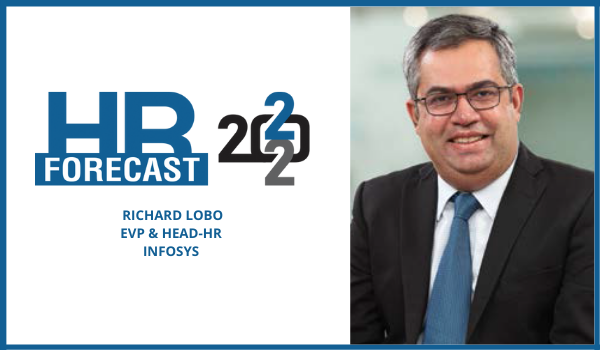A big change in 2022
The year 2022 will be about incorporating different work models into our world of work. As we will have learnt to adapt new work patterns to be productive, the year will be about doing better for optimal productivity and engagement. This will involve us seamlessly adjusting to the three options most of us have for work – working out of office, working remotely and working partially remote, and in office (hybrid).
Some of the areas of focus will be:
Better use of technology – The tools we currently use for remote working will get significantly better. Virtual reality components will be enhanced with more embedded AI and machine learning, and become more sentient. These tools could be used to adjust work schedules to factor in times when an individual is most productive; enable a better meeting experience through virtual reality; nudge employees towards better collaboration using organisational network analysis; offer virtual assistance at an individual level to improve productivity, and so on.
Change in workplace behaviours – Multi-modal work can be difficult unless companies consciously redesign workplace norms to allow virtual and in-person work. This will not happen automatically. For instance, if one is running meetings with some people in office and others joining virtually, a good way of making the meeting productive would be for those in the meeting room to join in using individual laptops so that everyone can be on a level playing field. Another example is to evaluate performance fairly and reduce impact of an in-person worker getting an advantage over a remote worker due to proximity.
Preservation & improvement of culture – We will need to focus on creating a sense of belonging, common purpose, and shared identity that inspires people. Company culture did not develop because everyone worked out of an office. It developed through shared passion and purpose. In 2022, companies will re-focus on aspects of their culture that made them successful and also bring in new aspects of culture that were discovered during the pandemic imposed remote working phase. Some of the ways we communicate and emphasise culture may need to change as we move towards the new way of work, but it also opens up many possibilities to do this better.
“Company culture did not develop because everyone worked out of an office. It developed through shared passion and purpose”
Learning be driven by social, technology or content
We will see a significant change in how people learn and upskill. Companies will use a combination of tools – customised online content; simulated learning situations; VR-enabled classrooms, and social media-driven deployment to fuel a learning model where employees not only own skill development, but also learn in a way that is useful for the organisation.
Learning will become the key component of an organisation’s ‘people strategy’ as companies compete fiercely to attract, engage and retain talent. Most jobs over the next three to five years will be transformed by technology, and the technology landscape itself will rapidly change. Hence, lifelong learning and adapting to the new will be more important than ever. Employees will expect a ‘high touch and high tech’ learning experience wherever they work – remote or in office. The learning experience will need to be comparable to the consumer entertainment content one consumes on one’s phone. Anything less will simply not be delightful. AI and VR will be the twin supports for the next-level learning systems. These systems will allow training to be tailored to meet individual needs and be delivered in a seamless realistic way that will be accessible wherever the individual is located. At the same time, the individual learners will have substantial control over their learning activities that make them the centre of the experience.
Further, one will need to expand one’s learning audience to include customers, gig workers, and digital workers (bots). The increase in scope will make design and delivery challenging and bring in innovation to what was, for a long time, a traditional approach.
“Employees will seek answers on the way to fairness and equity”
Voice for change among employees getting stronger
Companies that strive to be the best employers find ways to ease the conflict that people can feel between their work and their personal values. Companies need to have their values aligned more towards the good of society and the planet. It’s a great opportunity for companies to engage with employees in having a clear long-term purpose built into business strategy. This allows employees to participate in a shared vision, express their personal values freely and find purpose and meaning at work.
Environmental, social, and governance (ESG) issues are no longer treated as an afterthought by employees. These are becoming increasingly central to a firm’s attractiveness as an employer. Companies that have better scores on ESG also do well on employee engagement and satisfaction.
In 2022, the important questions that employees will seek answers to will be about the way fairness and equity are managed within the company; the company’s impact on the environment; its stand on socio-political issues, and so on. A growing number of companies have made changes to their approach to employee health and well being as a result of the pandemic. A similar approach is needed when it comes to other ESG areas that are becoming increasingly important to all stakeholders, including employees.



